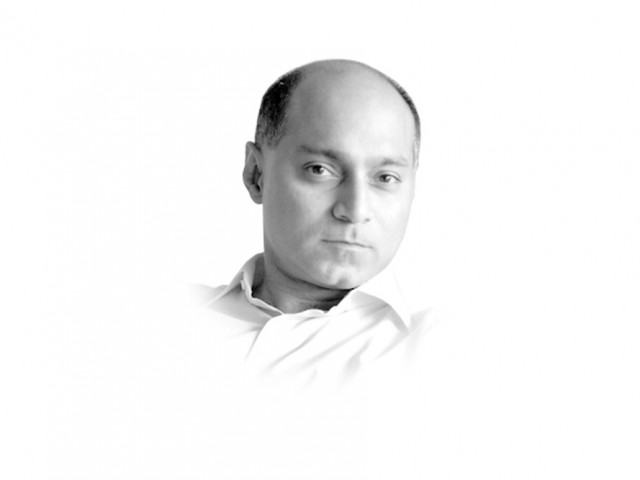What the envoy said
Our foreign office, its envoys, ministers, secretaries are limited to the role of public relations damage control.

A report in this newspaper headlined the first day of the conference with these words: “Envoys want less emotion, more strategy in policies”. Some of the contents of that report, sourced to a single anonymous participant, were striking.
For instance, the participant told the reporter that the envoys “urged the government to immediately reopen supply routes for Nato forces” and that “foreign policy should be based on strategy, not sentiment”.
The report goes on to say that the views of the country’s top diplomats “were in stark contrast to the tough stance taken by the government as well as the military establishment in the aftermath of the Nato attacks”.
Fair enough. This is exactly what one would expect foreign envoys to say if you think about it. For many decades now, the foreign office establishment has taken a dim view of the country’s foreign policy, over which they have had very little control. I recall, as a vivid example, a visit by the late Agha Shahi to LUMS in the aftermath of the nuclear tests in 1998, when Pakistan was completely isolated in the world community and bottled up behind a wall of sanctions.
I had a brief opportunity to speak to him directly and sensing the fleeting nature of the moment, I kept my question brief and open-ended. “How long will Pakistan remain isolated, Agha sahib?” I asked. “For as long as we patronise militant groups, for as long as we try to use terrorism as a tool in foreign policy,” his reply began. And then he continued, and I’m paraphrasing from memory here: “We have done this to ourselves, we have followed very misguided policies to pursue our interests and the result is this, this isolation. If we don’t stop patronising extremist groups, we will never escape this isolation”.
I know enough about the foreign policy of our country to know that the foreign office and its envoys and ministers and secretaries and spokespeople have always, privately, chaffed at the role they have to play in the execution of our foreign policy: the role of public relations damage control. Remember the silent outcry of the envoys in the wake of the Kargil disaster? All our ambassadors and high commissioners around the world woke up one day to discover that their country was in the middle of a major conflagration, that their host countries had serious and indignant questions to ask about the whole affair about which none of them had been briefed. They read about it in the newspapers.
I got a glimpse of how this works at a wedding dinner that I was attending in Rawalpindi, in the first week of July 1999. The Kargil war was the backdrop and on every table it was the foremost topic of conversation. I had the misfortune to be seated next to a retired general who asked me what I did and when I told him I was a teacher at LUMS, he went off on how important it was for me to explain to my students what was happening in Kargil, how much it matters to the country and that they should all support the venture.
I argued back that I would do no such thing, in fact, I was doing the exact opposite by holding seminars and inviting speakers to come and talk about how deeply misguided the entire venture was. An argument ensued during which I made a reference to the growing isolation that had become Pakistan’s destiny ever since we embarked on a policy of using deniable militancy as a tool of foreign policy.
“Isolation?” growled the visibly irritated general. “That is the job of the foreign service, what do we have them for?”
“You tell me general,” I said. “What do we have them for?”
“To explain our point of view to the world!” he shouted. “You think that is a tough job?” He went on, “We in the army have to do far tougher jobs than that all the time and we don’t complain, why does everyone else always complain?”
This snippet from the conversation has stuck in my mind because it is extraordinarily illustrative of how captive our foreign policy really is to the mercurial impulses of generals and their deluded pursuit of ‘national honour’. Let them do whatever they please and let the envoys clean up the mess. That is their job!
On the second day of the conference, a set of ‘recommendations’ were issued, which are the diametrical opposite of the concerns reportedly aired by the envoys on the first day. What happened? Was this a case of misreporting, or were the envoys made aware of some ‘ground realities’ of their home country?
Perhaps our envoys should take whatever views they brought with them to the conference and wrap them with fresh flowers into a bright and beautiful wreath to lay on the grave of Agha Shahi, who could probably have told them before they even departed their host stations that they were being summoned to Pakistan to be told what to think, not to be consulted. The flowers will eventually wilt, but Agha sahib’s insights will not.
And, on their way out, they should buy themselves a broom each and prepare to get on with their jobs back in their host stations. After all, securing our ‘national honour’ is hard work, don’t they know that?
Published in The Express Tribune, December 15th, 2011.















COMMENTS
Comments are moderated and generally will be posted if they are on-topic and not abusive.
For more information, please see our Comments FAQ